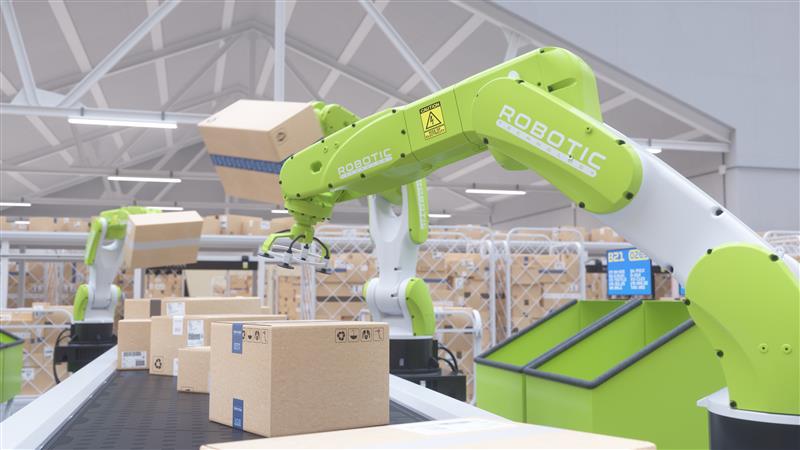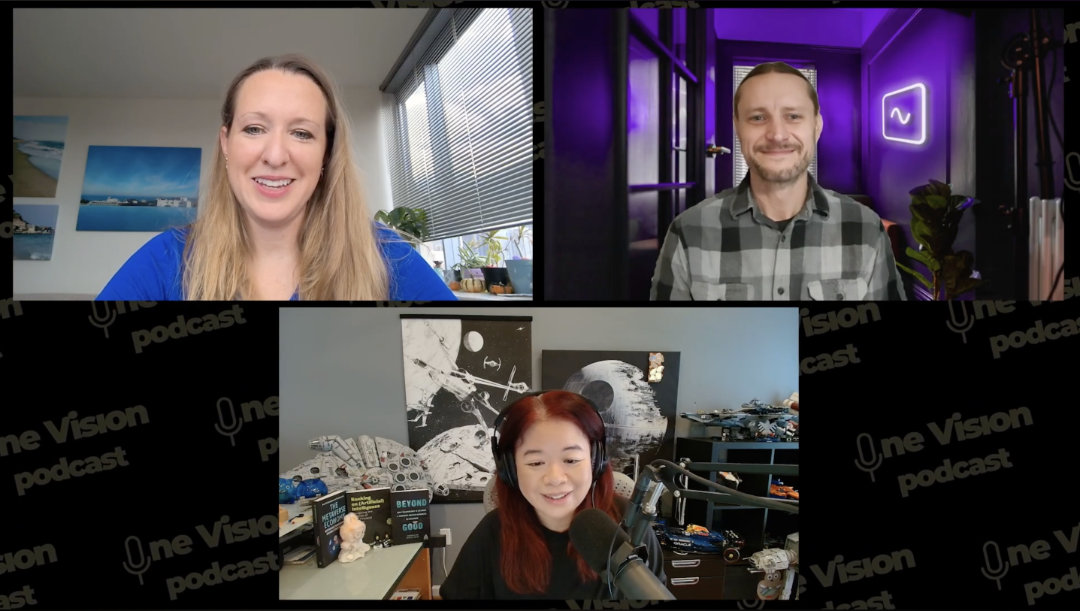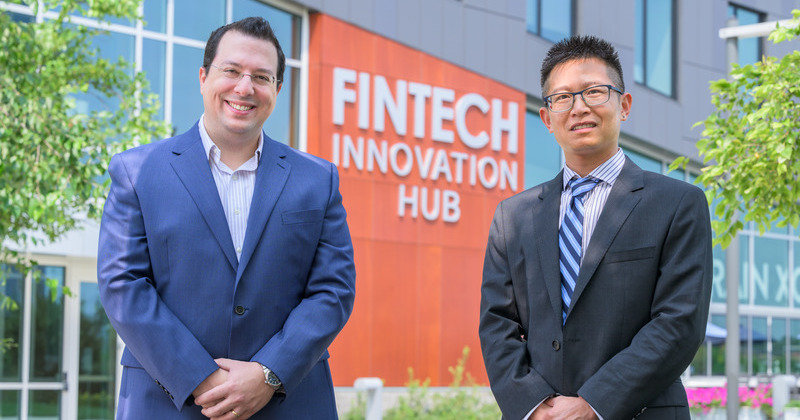Tsoutsos, Wang bring energy, expertise in cybersecurity and societal impact
UDaily August 29, 2024
Words By: Beth Miller
The University of Delaware’s burgeoning endeavors in financial technology — fintech, for short — will have new leadership, effective September 1.
Nektarios Tsoutsos, an expert in cybersecurity in the College of Engineering, and Gang Wang, an expert in adoption of digital technologies and their societal impact in the Alfred Lerner College of Business and Economics, will direct UD’s fintech ecosystem, taking over for colleagues who set the table last year — Prof. Carlos Asarta of Lerner and Prof. Rudolf Eigenmann of the College of Engineering.
“I went from working with a set of amazing co-directors to working with a set of amazing co-directors,” said Kimberly Isett, vice provost for academic programs and University initiatives. “What a gift!”
It was just last October that UD officials and partners in industry and government cut the ceremonial ribbon at the six-story FinTech Innovation Hub, which is owned by Delaware Technology Park and hosted on UD’s Science Technology and Advanced Research (STAR) Campus.
The STAR Campus is a fascinating new ecosystem of academic expertise, world-class research and industry, a public-private partnership that also includes innovation centers in health, energy and the environment.
The FinTech Hub was enabled by Discover Bank’s Community Reinvestment Act investment, with support from the State of Delaware, federal sources and UD. In addition to UD, tenants in the building include non-profits, small businesses, incubator companies and others with products, services and innovations, all aligned with the mission. UD’s Data Science Institute has launched a FinTech Consortium to provide access to UD’s expertise in data science, artificial intelligence and machine learning. And UD’s Center for Cybersecurity, Assurance and Privacy has a strong presence with students and researchers, driving groundbreaking initiatives in cybersecurity.
CapitalOne is in the acquisition process with Discover and has committed to another five years of financial support for the Hub, according to UD’s Tracy Shickel, associate vice president of corporate engagement.
Focus areas at the FinTech Hub include research, education, workforce development, venture creation and support, and innovation.
“Our vision is that UD becomes the epicenter for fintech scholarship and partnerships — not just regionally, but nationally,” Isett said. “We have all the makings to do that. That building is just phenomenal and beautiful.”
Tsoutsos, an assistant professor of electrical and computer engineering with a joint appointment in computer and information sciences, joined UD’s faculty in 2018. As associate director of the Center for Cybersecurity, Assurance and Privacy, he brings extensive cybersecurity expertise to the task.
Wang, associate professor of management information systems and a research fellow in Lerner’s Joint Educational Institute, joined UD’s faculty in 2015. He is an expert in digital platforms, technology adoption and the societal impact of information technology.
“Part of what is exciting to me about working with them — they have that energy,” Isett said. “Under their leadership I think the FinTech hub is going to go in places we can’t even imagine.
“And based on the research that the two of them do — super cutting-edge stuff — they are, as individuals, going to be national leaders in this space.”
UD’s expertise in fintech
As financial technology continues to mature, it is transforming financial practice, access and potential around the world. UD is well-positioned to lead in this arena, with expertise in blockchain technologies, cybersecurity, cryptology, artificial intelligence, cryptocurrency, machine learning, data science and public policy, along with the state’s history of national leadership in financial services.
The FinTech Hub was created to promote and enable collaborative work that improves equity in financial services and health, especially for low-income populations where access to high-quality services has been missing for many.
Fintech can make such access easier, faster and more secure.
What used to require a trip to the bank (when the bank branch was actually open, mind you), a meeting with a notary or a written check and a postage stamp now requires no more than a moment on a smartphone or a laptop. You can open accounts, transfer money, pay bills, make investments — and much more.
New currencies and cryptographies have emerged in this new digital ecosystem.
Many opportunities, efficiencies and financial upgrades present themselves — if you understand the technology enough to use it, if you trust the platform enough to interact with it, if your identity and financial information can be appropriately verified and protected.
Security is critical to all of that and Tsoutsos said UD’s strength in cybersecurity was one of the things that drew him to the faculty.
“I enjoyed how mature the existing program in cybersecurity was,” he said. “That was a major factor for me. One thing UD is very good at is focusing on the network and the software aspects of cybersecurity. I was working more on hardware. So the synergy was natural. I was fully complementing that work.”
He has offered graduate-level courses on cryptography and hardware security and was instrumental in developing UD’s cybersecurity engineering bachelor’s degree program, one of the first ones in the country.
Among the areas of keen interest to Tsoutsos is something called “homomorphic encryption,” which he says was one of the biggest breakthroughs in cryptography.
Traditional cryptography allows you to encrypt sensitive information so that it cannot be stolen or used by anyone who does not have the key.
Homomorphic encryption expands the possibilities — making it possible to send encrypted data to a recipient without having to also send the secret keys. The other party can apply machine learning on the scrambled data and generate an encrypted result that — when returned — works. No key necessary.
Tsoutsos also has been part of adopting mobile ID technology that makes it possible to have a secure copy of your driver’s license in your mobile device. Discover Bank saw that using a mobile ID could give people access to banking services without having to go physically to a bank — and that is a great help to those who have difficulty getting to a bank during working hours.
“One of the critical missions for the FinTech Hub is to help low- and medium-income families,” Wang said. “I can bring my research expertise in technology and societal impact and connections — together with Nektarios — to advance the Hub’s mission of adopting fintech for social good.”
So much is happening in the field and at UD, Wang said. He recalled meeting with two faculty members during his visit to campus for a job interview. After dinner, one of them drove him to STAR Campus, where there was just one building at the time. By then it was 9 p.m., Wang said, and the faculty member pointed into the darkness.
“He said, ‘Gang, in the future there will be more buildings here,’” Wang recalled. “And now, after nine years, I have seen the rising of the new buildings. The firms and the talent in this building — this is a very unique place. I don’t just see potential collaboration within the Lerner faculty, but also the potential with faculty from other schools at UD, as well as with industry participants and regulators. This got me excited. I want to be part of it to facilitate the bigger mission of the Provost’s Office.”
Fintech is developing rapidly, Wang said.
“The technology is evolving really fast,” he said. “The adoption of technology and its regulation is way slower. How does the adoption of technology affect individuals and institutions? How should regulators craft policies that protect consumers while still fostering innovation?”
Educating the public — even developing programs for high school students — is an important part of that evolution.
“The technology itself is wonderful, but it needs to be in the right context for the right people,” Wang said. “If you don’t use crypto or cash apps and you don’t see the benefits, if I tell you a cashless society will help with financial inclusiveness and will help low- and middle-income families, you would probably do that. An education program will help you understand the technology better while protecting yourself.”
Nurturing the fintech ecosystem at UD aims to help everyone make informed decisions, Tsoutsos said.
“Am I taking a risk now or is this a sure thing?” he said. “You need to understand what it means when you give the keys to your wallet for someone else to manage. If you’re OK with the risk, you know that some pay off and some don’t — if you understand the risk, that’s part of the education.”
Collaborations with industry bring new opportunities for students and faculty, Wang said.
Research can help to address financial fraud and blockchain technologies can help to make transactions faster, more secure and more efficient. Using artificial intelligence can help to automate processes, improve service and enhance security. “Smart contracts” offer the potential for digital, tamper-proof, more enforceable agreements.
Advances in policy and regulations and emerging partnerships between banks and fintech firms add to the ongoing expansion of the field.
Busy year in fintech at UD
The past year was a busy one for UD’s work in fintech. In a report produced for President Dennis Assanis and Provost Laura Carlson, Carlos Asarta and Rudi Eigenmann presented an impressive sampling of the fintech community’s efforts, including:
Hosting Delaware Fraud Working Group Training, in partnership with the UD Center for Economic Education and Entrepreneurship. The event, which was open to law enforcement and the financial sector, drew 50 participants.
Hosting a “Lunch and Learn” series, bi-weekly presentations and discussions sponsored by Discover Bank and conducted by fintech-related companies, UD centers, institutes and faculty. Average attendance was 30 people.
Hosting the “Spark! in Five Symposium,” a program done in collaboration with UD’s Graduate College, focused on advancing financial health, technologies, literacy, access, policies and implementation. Presentations included students from UD and Morgan State University. The event, sponsored by Discover Bank and Cross River Foundation, drew 80 participants.
Hosting the inaugural Fintech and Financial Institutions Research Conference, a forum for presenting and sharing current research on the connectivity between fintech organizations and the greater financial services system. The conference was organized in partnership with the Federal Reserve Bank of Philadelphia and sponsored by Discover Bank and Cross River Foundation.
Hosting the 2024 Fintech Workshop, which brought together researchers, practitioners and industry experts to discuss the latest advancements, challenges and opportunities in the fintech space. Presenters included representatives of the International Monetary Fund, the U.S. Treasury and multiple higher education institutions. The event, which drew 60 participants, was sponsored by Discover Bank and Aramark.
Supporting the development and launch of the Center for Accelerating Financial Equity (CAFE), a non-profit organization that advances financial health and wellness for low- to moderate- income and other underserved communities through fintech innovation and partnerships.
Supporting the development of the new, UD Faculty Senate-approved fintech major and fintech minor.
Developing a partnership with Morgan State University, participated in their fourth National HBCU Blockchain and Fintech Conference and invited them to participate at UD events.
Participating in numerous meetings with fintech stakeholders, funders, community partners and supporters, including the National Science Foundation, American Fintech Council, VISA, Consumer Financial Protection Bureau, Federal Deposit Insurance Corporation, Delaware Bankers Association and others.
About the researchers
Nektarios Tsoutsos is an assistant professor in the Department of Electrical and Computer Engineering at the University of Delaware, with a joint appointment in the Department of Computer and Information Sciences. He is also associate director at the Center for Cybersecurity, Assurance, and Privacy at UD. His research interests include cybersecurity and applied cryptography, with a special focus in hardware security, trustworthy computing and privacy outsourcing. He has been recognized with a National Science Foundation CAREER Award for his work in this area. He is an associate editor for IEEE Embedded System Letters. Tsoutsos earned a five-year degree in electrical and computer engineering at the National Technical University of Athens, Greece, a master’s degree in computer engineering at Columbia University and his doctorate in computer science at New York University. Before joining UD’s faculty, he was a postdoctoral associate at New York University, spent time at Intel and the Security Center of Excellence in Hillsboro, Oregon.
Gang Wang is an associate professor in the Department of Accounting and Management Information Systems at UD’s Lerner College of Business and Economics and a research fellow at the Joint Educational Institute (JEI). His research interests include digital platforms, technology adoption and the societal impact and regulation of IT. His research has been published in Management Science, MIS Quarterly, Information Systems Research, and other premier academic journals. He is an associate editor at Decision Support Systems and Decision Sciences Journal. He also served as a guest senior editor at Production and Operations Management. He earned a bachelor’s degree in management information systems and a master’s in management science and engineering, both at Nankai University in China, and his doctorate in operations and information management at the University of Connecticut.

The future of work in Delaware
Backing innovation and strengthening our...

CAFE Leaders Featured on One Vision Podcast to Discuss Financial Equity, Founder Collaboration, and the Future of Fintech
The One Vision Podcast has released a new...

Press Release Dec 2, 2025: IgniteFI and CAFE Partner to Empower Fintechs Serving Credit Unions
IgniteFI, a leading fintech advisory firm...

